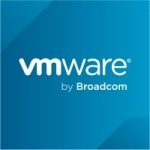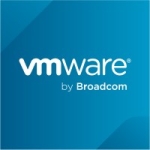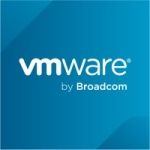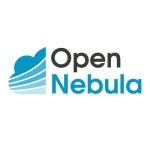What is most valuable?
The product is valuable - when we start virtualizing everything, specifically in the compute stack – for looking at the health of the ecosystem. It is very difficult to pinpoint your challenges in terms of performance. It also helps understand where your issues lie. vROps actually demystifies that for you, drilling deep into the infrastructure beyond what vCenter Server gives you. It puts together real metrics that make sense to you. For example, if we look at the metrics inside a vCenter Server, we can look independently at, for example, CPU utilization, processor, networking, but it's not tied together to give you a holistic view of the health of your environment. vROps actually does that for you, and then makes recommendations.
The other thing I love about the product is that, with other products like vRA and Orchestrater, we can actually send that information to an automation platform for self-healing and for mediation. That makes it very, very powerful.
How has it helped my organization?
For example, we can actually proactively monitor and anticipate server sprawl, or capacity depletion. We can actually see that coming before it arrives. We can head off issues such as saturation of resources in any particular host, aberrant behavior of applications. We can actually see those issues coming, head them off and manage more proactively, as opposed to reactively.
For example, we have people that have unfettered access to the vSphere environment. They just spin up servers at will, without really any regard for how that's going to have an impact on resources. vROps will give you a health batch, and you can start seeing problems develop before they arrive. It gives you an opportunity to anticipate a problem before it happens, address it and then remediate it before it actually becomes an issue in production.
The main concern, the main dropper right now was capacity planning, capacity management and heading it off.
Storage tends to be something that's always in high demand at our company. We really use this product to get a better forecast of organic growth and new organization. When you're going to look towards your budgeting for future years, you have to have something that's going to provide some type of a benchmark for you in terms of what you need to acquire for that next fiscal year.
What needs improvement?
One of the things about vROps is that, it's very robust. If you want to set up a notification, it's very, to me, involved. If they can streamline some of that through orchestration into what you’re trying to do with setting up alerts and things of that nature, in groups and policies, and tie those things together in a more seamless manner. I think that would be helpful.
There are multiple elements that need to be set up for a purpose, by contrast. I'll compare it to the installation of a vRA; when you set up vRA, it steps you through everything sequentially, like a workflow. If they can put a workflow into vROps for the types of things that you want to set up for policies, triggering and monitoring, I think that'd be very helpful; as opposed to clicking out of one pane, clicking into another pane, referencing what you just set up in a previous pane, those types of things.
Think about if, when you're setting up your triggers and your alerts, it could be something sequential, like through a wizard, or something of that nature. To help you walk through, take you right to the next screen that you need to go to. You don't click out of one area and then back in.
For how long have I used the solution?
We’re not yet using any of the new features in version 6; that’s what I'd like to get to.
What do I think about the stability of the solution?
I think it's very, very stable. When it first came out, I did have some concerns with it. When it first came out, I can understand, as a maiden voyage, that there were some opportunities for improvement. I think VMware has worked very hard, as they typically will do, to remediate those issues. The only issues I had in the beginning was, the amount of information and tuning it required for the information to make sense to the typical admin. It really wasn't there, maturity-wise. I think they've done that now. The health batches now really do make sense to someone who has tuned the environment, or make sure that the application is tuned to their environment.
What do I think about the scalability of the solution?
I think it's incredibly scalable.
We have a small environment. In our production environment we have 60 hosts and only, maybe, 500 VMs. I've not had an opportunity to use it in massive scale but for us, it's been something that we've been able to use.
How are customer service and technical support?
I haven't used technical support; I haven't had the need to.
Which solution did I use previously and why did I switch?
We previously the SolarWinds virtualization manager. The way in which it's licensed, the way in which it provides dashboarding is very, very complicated to use. The information is not easily consumable; it's just not easy digestible. We found that we had licensed versions of it sitting out for years without actually using it, because it just wasn't helpful for us.
I love the fact the vROps is tightly integrated with the other VMware families; purpose-built for running on vSphere. It's purpose built from the ground up by VMware architects and engineers who understand their other products and how they're bringing it to the family. For example, I'm looking to use vROps today to coalesce with vR Orchestrator, so that we could do some of the software mediation types of things through messaging to the vRO platform.
How was the initial setup?
vROps is very, very straightforward to stand up. I would say, much more straightforward than some of the previous iterations. That's one of the other things I appreciate about the products VMware is bringing to market. They're making their products easier to deploy.
Which other solutions did I evaluate?
We looked at VMTurbo, now re-branded as Turbonomic. It didn't bring anything new to the fold for us. The way in which it's licensed is really, I think, a little bit outrageous. I just think VMware continues to do a stellar job in how they put together solutions that are purpose built and threaded together to work as an entire ecosystem.
What other advice do I have?
Give it a chance, put it in a honey pot. I come from a consulting background, so a lot of companies tend to throw something directly into production. They don't actually have the opportunity to spend the time to learn the product first. That gives the product a negative connotation because it doesn't give them the results that they're looking for.
Apply the appropriate principles of project management during your pilot, your proof of concept, proof of technology. Then, pilot it, and then have a clear understanding of what it is, the scope and scale that you're trying to get out of the product. Then tailor your installation for that. I think that'll be something that'll have a higher chance of success.
Disclosure: My company does not have a business relationship with this vendor other than being a customer.

















